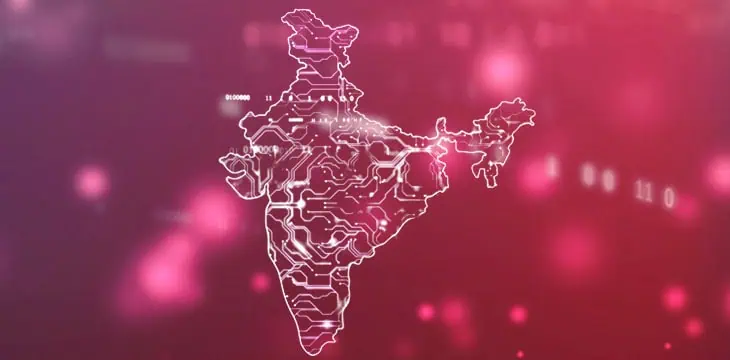|
Getting your Trinity Audio player ready...
|
India plans to create a Unified Payments Interface (UPI) kind of public platform to utilize artificial intelligence (AI) while creating the computing infrastructure required to boost the country’s AI ecosystem.
The South Asian powerhouse said it intends to “democratize” technology and AI and make it accessible to all, simultaneously investing in AI-focused common-use public platforms, which can be used by one and all to innovate, develop and deliver products and services in a competitive and collaborative manner.
“Technology should be accessible to everybody. So the digital public infrastructure is a classic case where no single payment provider, no single service provider, has monopoly over the service. The government invests in the platform and everybody becomes a part of that,” said Ashwini Vaishnaw, the Minister for electronics and information technology. He was speaking at the Global IndiaAI Summit, a two-day event that involved industry and startup veterans, AI practitioners, academics, students and officials from central and state governments.
“Same approach we are going to [have] in AI also. The government will be investing in creating a public platform where compute power is available, high quality datasets are available, a common set of protocols is available, a common set of technical as well as legal framework is available. Then, the start-ups, the entrepreneurs, the academicians, the people who are working on different applications for a variety of sectors like agriculture, medicine, healthcare, education, people working on those solutions can use this common platform for accelerating their efforts,” Vaishnaw added.
In March, India approved $1.24 billion for the next five years to boost the country’s AI ecosystem, innovation, and entrepreneurship. The initiative is expected to boost India’s global leadership in AI and ensure ethical and responsible AI deployment.
India will procure over 10,000 graphics processing units (GPUs) to address India’s computing capacity needs in order to develop a high-end AI ecosystem.
“We will procure 10,000 or more graphics processing units (GPUs) under a public-private partnership so that the efficiencies of the industry can be harnessed for a bigger cause. We will also have an AI innovation centre, high quality data sets which can add more value to the efforts of startups, and an application development initiative where apps relevant to our socio-economic problems can be developed. We will have a huge focus on skill development,” Vaishnaw said.
“We will also focus on accelerating deeptech and AI financing because we know that venture capital will come at a point where the returns start being visible. The phase before that is most vulnerable, so how we support the deeptech startups during that vulnerable phase will be part of our mission,” Vaishnaw added.
Tackling AI-related threats
Vaishnaw pointed out how during the general elections, which concluded last month, India experienced how big a threat disinformation, misinformation and fake news can be. According to Vaishnaw, that threat gets multiplied by the power of AI.
“This is not something which only we are experiencing. The entire world has experienced the same and globally every society, every government is feeling exactly the same threat from the emergence of new risks based on AI,” he said.
India’s general elections, the largest in human history with about 970 million registered voters, not only used AI to target voters through dozens of language translations but also wielded it to create deepfake videos and conversational bots, raising concerns over the misuse of the technology.
In an AI-generated fake video, top Indian actors—Aamir Khan and Ranveer Singh—were shown criticizing Prime Minister Narendra Modi for failing to keep his promises and persuading voters to vote for an opposition political party. Likewise, a fake video of Union Home Minister Amit Shah reportedly said that his Bharatiya Janata Party (BJP) would do away with reservations for backward classes, a sensitive issue in India.
“We in India have basically understood that for many challenges, economic as well as social challenges that we face, AI can be a very big tool to solve [them]. Simultaneously, we need to contain the risks which AI brings. We also believe that the solution has to come through a global thought process; it cannot be done in isolation by any country,” Vaishnaw added.
In order for artificial intelligence (AI) to work right within the law and thrive in the face of growing challenges, it needs to integrate an enterprise blockchain system that ensures data input quality and ownership—allowing it to keep data safe while also guaranteeing the immutability of data. Check out CoinGeek’s coverage on this emerging tech to learn more why Enterprise blockchain will be the backbone of AI.
Watch: Blockchain, IPv6, AI & 5G will pave the way for the new Internet

 07-19-2025
07-19-2025 





